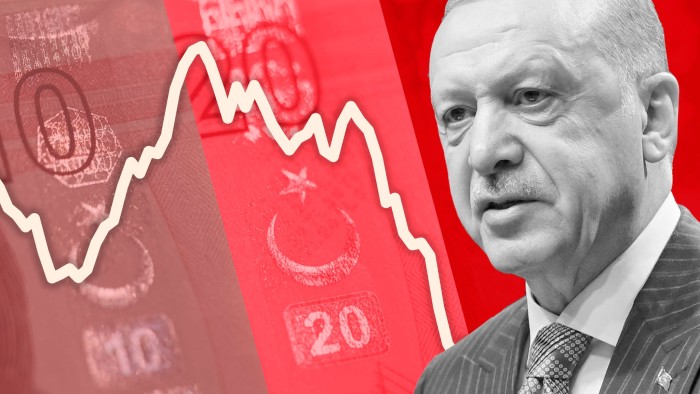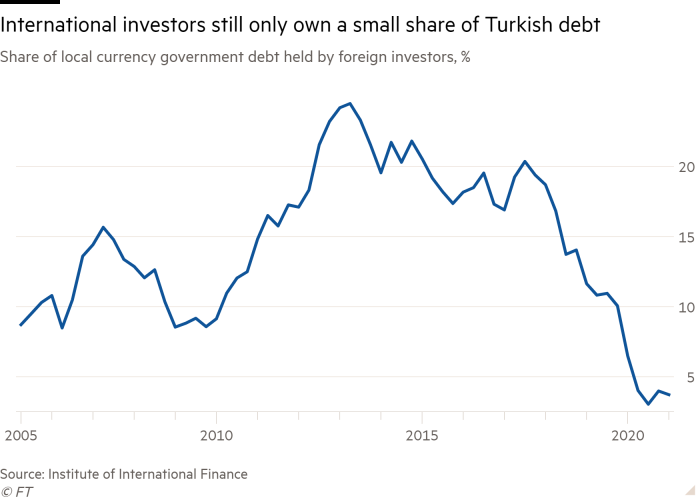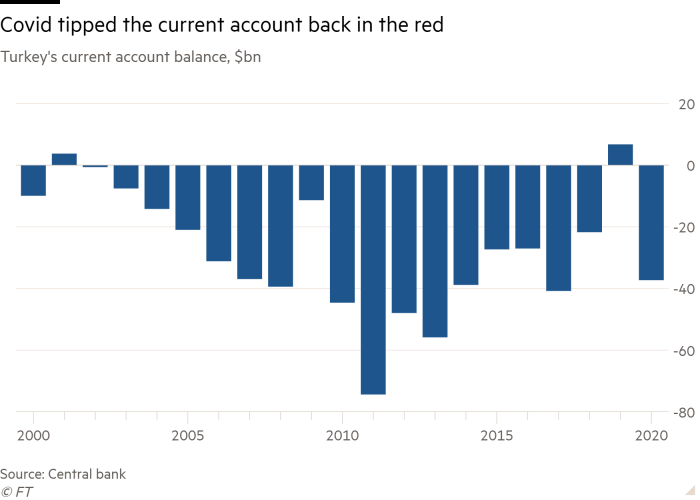High yields tempt wary investors back into Turkish debt

Roula Khalaf, Editor of the FT, selects her favourite stories in this weekly newsletter.
Foreign investors have begun tiptoeing back into Turkey’s debt market after severe ructions earlier this year, but many remain deeply sceptical about the outlook for one of the world’s biggest emerging markets.
A $2.25bn Turkish dollar bond sale this week attracted vigorous demand from investors across the UK, US and Europe, in the latest sign of how the country is beginning to lure back fund managers with high returns that are elusive in many other markets.
“Some investors are willing to hold their noses despite all the risks,” said Timothy Ash of BlueBay Asset Management. “We’ve had a few months of relative currency stability, the ‘carry’ is high, we are in a low-yielding world.”
Some fund managers have had little choice but to go back. During the months of relative stability, Turkish assets have made a positive contribution to the returns on emerging market assets overall. This means that fund mangers who have invested less in Turkey than its weight in their benchmark indices have underperformed.
Those that have actively shorted Turkey’s currency or bonds — borrowing them to sell them in the hope that the price falls and they can buy them back cheap and pocket the difference — have seen those trades go the wrong way.
“Turkey is a pain trade,” said Ray Jian, portfolio manager at Amundi, Europe’s largest asset manager. “Everyone is underweight or short and paying negative carry and nobody is making any money.”
The allure of high yields has also been too strong for some investors to ignore. A 12-year bond, denominated in US dollars, that sold as part of this week’s debt deal will be issued at a yield of 6.5 per cent, above the roughly 5 per cent yield on offer across the EM government bond market, according to a JPMorgan debt index.
Turkish debt denominated in lira provides even juicier yields, with the benchmark 10-year government bond paying 16 per cent. Some traders participating in the “carry trade”, in which they borrow in the currencies of countries with relatively low yields like dollars or euros and then lend in areas with higher interest rates, have also been drawn in.
Global bond yields are near historic lows, with 10-year US Treasuries yielding 1.3 per cent and many highly rated European bonds priced such that investors are assured a loss if they hold them until maturity.
While sentiment around Turkey has improved in recent months, many investors say they remain reluctant to pour more capital into the country after a series of interventions earlier this year by the government of Recep Tayyip Erdogan sent asset markets into freefall and severely eroded investor confidence.

Investors sharply cut their positions after Erdogan in March sacked Naci Agbal, appointed last November as the fourth central bank governor in five years, just 36 hours after he boosted interest rates.
Sahap Kavcioglu, his little-known replacement, was expected to cut interest rates at the first opportunity. He was put in the job by Erdogan, who views high rates as the cause rather than cure of Turkey’s high inflation, as well as “the mother and father of all evil”.
The lira tumbled as much 14 per cent to a record low in response to the Agbal firing and remains down almost 12 per cent for the year to date. The markets have steadied this spring, helped by Kavcioglu declining to cut interest rates from the 19 per cent level set by Agbal.
However, the damage of that latest Erdogan intervention, coupled with other moves in recent years that have worried investors, has already been done.
International investors hold about 4 per cent of the country’s local government bonds, according to data collated by the Institute for International Finance. In 2013, when they were most bullish about Turkey’s growth story, foreigner investors owned almost a quarter of the government’s local currency debt.
It is not only Erdogan’s views on monetary policy that have turned investors away. Geopolitics, and Turkey’s role in an unstable region, have also contributed. Erdogan’s willingness to get close to Vladimir Putin, Russia’s president, has been one worry.
But analysts say such concerns have eased since Erdogan’s meeting with US president Joe Biden at the Nato summit in June — another reason for fund managers to reduce their underweight positions.

Another enduring cause of concern is Turkey’s current account deficit and how to finance it. The account moved briefly into surplus in 2019 before returning to deep deficit during the pandemic. But in January to July this year the deficit narrowed to $13.7bn from $23.2bn in the same period in 2020, according to the central bank, largely the result of a better than expected recovery in revenues from tourism.
Meanwhile, inflation is running above 19 per cent, meaning that Turkey’s very high policy rate is negative when accounting for domestic price growth.
For investors, said Atilla Yesilada, an analyst at Istanbul-based GlobalSource Partners, “there is still an issue of trust”.
“You don’t know what will happen in Turkey tomorrow,” he added.
Additional reporting by Ayla Jean Yackley in Istanbul
Comments